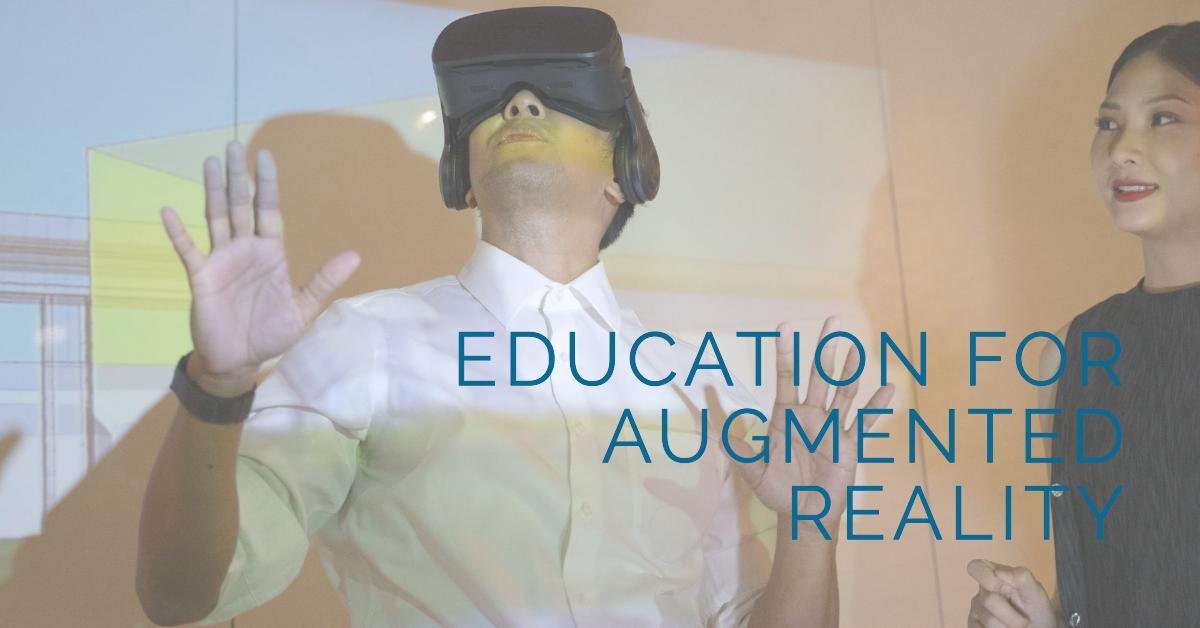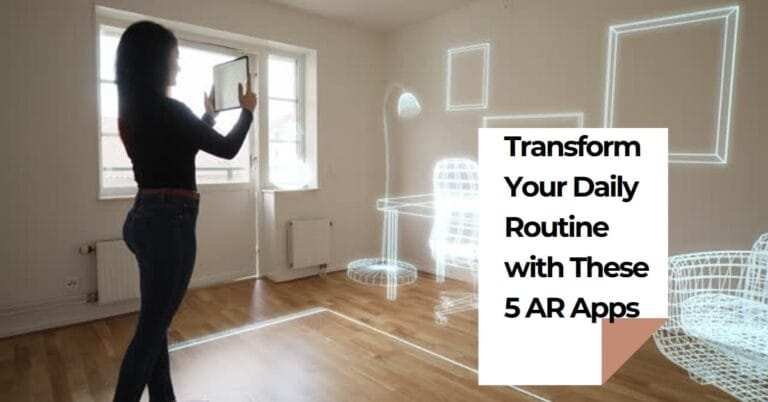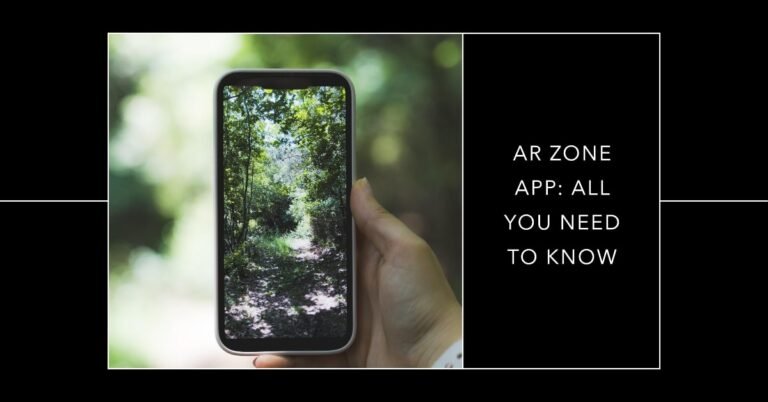What Level Of Education Is Needed For Augmented Reality?
What Level Of Education Is Needed For Augmented Reality? If you’re diving into the world of augmented reality (AR), you might be wondering, “What level of education is needed for augmented reality?” It’s a fantastic question because the AR field is evolving rapidly, blending technology with creativity in ways we’ve never seen before. Whether you’re eyeing a career as an AR developer or designer, understanding the educational prerequisites can set you on the right path. Let’s break down what you need to know about educational requirements for a career in augmented reality.
What Level Of Education Is Needed For Augmented Reality?
To thrive in the AR industry, a solid educational foundation is crucial. Here’s a comprehensive look at the educational requirements and the steps you should consider:
1. Bachelor’s Degree: The Starting Point
A bachelor’s degree is typically the minimum requirement for most AR positions. Here’s a rundown of the common degrees that can set you up for success:
- Computer Science: This is a popular choice due to its focus on programming and software development, which are essential skills in AR.
- Software Engineering: A degree in software engineering equips you with the technical skills needed to build AR applications.
- Multimedia Art and Design: For those leaning towards the design side of AR, this degree helps in understanding visual and interactive elements.
- Engineering: Degrees in various engineering fields, such as electrical or mechanical, can also be relevant, especially for AR hardware development.
2. Master’s Degree: Specialization and Advanced Knowledge
While a bachelor’s degree provides the basics, a master’s degree can significantly enhance your career prospects, especially if you’re looking to specialize. Here’s how a master’s degree can benefit you:
- Specialization: Allows for deeper knowledge in specific areas like AR systems, user experience design, or advanced programming.
- Research Opportunities: Offers a chance to contribute to cutting-edge research and development in AR technology.
- Higher Earning Potential: Often leads to higher-paying positions and advanced roles within companies.
3. Certification and Training Programs
In addition to formal degrees, certification and specialized training programs can provide targeted skills and knowledge. These include:
- AR Development Certifications: Courses and certifications from platforms like Coursera or Udacity can boost your technical skills.
- Design Certifications: For designers, certifications in tools and techniques used in AR design can be incredibly beneficial.
- Industry-Specific Training: Some programs focus on the applications of AR in specific industries such as healthcare, gaming, or education.
Gaining Experience: Internships and Projects
When it comes to breaking into the field of augmented reality (AR), gaining practical experience is just as crucial as formal education. Internships and personal projects can provide you with the hands-on skills and real-world knowledge that make you stand out in this exciting and rapidly evolving industry. Here’s a comprehensive guide on how internships and projects can boost your career in AR, explained in simple terms and from a personal perspective.
The Value of Internships
Internships are fantastic opportunities to gain experience, build your resume, and network with professionals in the AR industry. Here’s why internships are so valuable:
- Real-World Experience: Internships allow you to apply what you’ve learned in your studies to actual AR projects. This hands-on experience helps you understand how AR technologies are used in real-world scenarios.
- Learning from Professionals: Working alongside experienced AR professionals provides you with insights into industry practices, tools, and workflows. You can learn tips and tricks that you won’t find in textbooks.
- Building Your Network: Internships offer the chance to meet and connect with people in the industry. These connections can lead to job opportunities, recommendations, and valuable advice for your career.
For example, during my own internship at an AR startup, I worked on developing an AR app for retail. I not only learned how to use advanced AR tools but also gained valuable contacts who later helped me land a full-time position.
Finding the Right Internship
To make the most of an internship, you need to find one that aligns with your career goals and interests in AR. Here’s how to find the right internship:
- Research Companies: Look for companies that specialize in AR or have AR projects. Check their websites, career pages, and social media for internship opportunities.
- Leverage Your Network: Ask professors, mentors, and industry contacts if they know of any internship openings. Networking can sometimes lead to opportunities that aren’t advertised publicly.
- Apply Early: Many AR internships have application deadlines months in advance, so start your search early to avoid missing out on opportunities.
For instance, if you’re interested in AR for gaming, you might want to apply for internships at companies that develop AR games or interactive experiences.
Making the Most of Your Internship
Once you secure an internship, it’s essential to make a strong impression and gain as much as possible from the experience. Here’s how to make the most of it:
- Be Proactive: Take initiative and show enthusiasm for the projects you’re working on. Offer to help with tasks beyond your assigned duties to demonstrate your eagerness to learn.
- Ask Questions: Don’t be afraid to ask questions and seek feedback. Learning from your mistakes and understanding how to improve is a crucial part of the internship experience.
- Document Your Work: Keep track of the projects you work on and the skills you develop. This documentation will be useful when updating your resume and discussing your experience in future job interviews.
During my internship, I made it a point to document every project I worked on, including the challenges I faced and the solutions I implemented. This record proved invaluable when I needed to showcase my experience to potential employers.
Engaging in Personal Projects
In addition to internships, working on personal AR projects is a great way to gain experience and showcase your skills. Here’s why personal projects are important and how to get started:
- Creativity and Innovation: Personal projects allow you to explore your creative ideas and experiment with new technologies without the constraints of a job. You can build projects that reflect your interests and passions in AR.
- Portfolio Development: Having a portfolio of personal projects demonstrates your skills and creativity to potential employers. It provides concrete examples of your work and showcases your ability to handle AR technologies.
- Learning by Doing: Working on personal projects helps you learn new tools, programming languages, and techniques in AR. It’s a hands-on way to deepen your understanding of the field.
For example, I created a personal AR project that involved developing an app to help users visualize home renovations. This project not only honed my skills but also became a key piece in my portfolio that impressed future employers.
Tips for Successful Personal Projects
To ensure your personal projects are effective and impactful, keep these tips in mind:
- Start Small: Begin with manageable projects that align with your current skill level. As you gain confidence and expertise, you can tackle more complex projects.
- Set Clear Goals: Define what you want to achieve with your project. Setting clear objectives helps you stay focused and measure your progress.
- Seek Feedback: Share your projects with peers, mentors, and online communities to get feedback and improve your work. Constructive criticism can help you refine your skills and enhance your project.
I remember starting with a simple AR app prototype and gradually expanding its features as I learned more. Sharing my progress with online AR communities provided valuable feedback that helped me make significant improvements.
Combining Internships and Projects
Combining internships with personal projects can provide a well-rounded experience. Here’s how to leverage both:
- Apply Skills from Internships to Projects: Use the skills and knowledge you gain from your internship to enhance your personal projects. This application helps solidify what you’ve learned and demonstrates your ability to transfer skills between different contexts.
- Showcase Both on Your Resume: Highlight your internship experience and personal projects on your resume and portfolio. This combination shows prospective employers that you have practical experience and a proactive approach to learning and development.
For instance, if you worked on developing AR filters during your internship, you might create a personal project that builds on that experience, such as a custom AR filter app.
Staying Updated with Industry Trends
Keeping up with industry trends is crucial if you want to thrive in the world of augmented reality (AR). The field of AR is rapidly evolving, with new technologies, applications, and trends emerging all the time. Staying informed helps you remain competitive, adapt to changes, and seize new opportunities. Here’s how you can stay updated with AR industry trends, using simple language and real-life examples to guide you.
1. Join Professional Associations
One of the best ways to stay in the loop is by joining professional associations related to augmented reality. These organizations are great resources for networking, learning, and professional development. Here’s why they’re valuable:
- Networking Opportunities: You’ll meet other AR professionals, from industry veterans to newcomers, which can lead to job opportunities, collaborations, and mentorship.
- Industry News: Associations often provide newsletters, journals, and updates on the latest trends and breakthroughs in AR.
- Events and Conferences: Many associations host events where you can hear from experts and see demonstrations of the latest AR technologies.
For example, joining the International Society for Augmented and Virtual Reality (ISVR) can connect you with a community of AR enthusiasts and professionals, keeping you informed about the latest industry developments.
2. Attend Conferences and Workshops
Conferences and workshops are fantastic for immersing yourself in the latest AR innovations and trends. Here’s what you can gain from attending these events:
- Learning from Experts: Conferences often feature talks and presentations from leading figures in AR who share their knowledge and insights.
- Hands-On Experience: Workshops provide practical experience with new AR tools and technologies, allowing you to try out the latest advancements yourself.
- Networking: These events are also great for meeting potential employers, collaborators, and other professionals in the field.
For instance, attending events like Augmented Reality Developers Conference (ARDC) can offer you firsthand experience with cutting-edge AR technologies and networking opportunities.
3. Follow Industry Blogs and Journals
Keeping up with AR blogs and academic journals is an effective way to stay informed about the latest research, trends, and innovations. Here’s how to make the most of these resources:
- Subscribe to Reputable Blogs: Follow well-known AR blogs and websites for regular updates on industry news, trends, and insights. Websites like TechCrunch and The Verge often cover the latest in AR.
- Read Academic Journals: For in-depth research and technical papers, academic journals like Journal of Augmented and Virtual Reality offer valuable insights into the scientific and technological advancements in AR.
Reading these sources regularly helps you understand the broader trends and emerging technologies in the AR landscape.
4. Engage with Online Communities
Online communities and forums are great places to discuss AR trends, ask questions, and share knowledge with others. Here’s how to get involved:
- Join AR Forums: Platforms like Reddit have dedicated AR communities where professionals and enthusiasts discuss the latest developments and share tips.
- Participate in Social Media Groups: LinkedIn and Facebook have groups focused on AR where members post news, articles, and job opportunities.
- Follow Influencers: Many AR experts and influencers share valuable insights and updates on Twitter and other social media platforms.
Being active in these communities helps you stay current with real-time discussions and updates from peers in the field.
5. Take Online Courses and Webinars
Online courses and webinars offer a convenient way to learn about new AR technologies and trends without leaving your home. Here’s why they’re beneficial:
- Flexible Learning: Online courses can be completed at your own pace, making it easier to fit learning into your busy schedule.
- Up-to-Date Content: Many courses and webinars are designed to cover the latest trends and technologies in AR.
- Interactive Learning: Webinars often include live Q&A sessions where you can ask experts questions and get immediate feedback.
Platforms like Coursera and Udacity offer courses on AR development and design, helping you stay current with new skills and knowledge.
6. Experiment with New Tools and Technologies
Sometimes the best way to understand industry trends is by getting hands-on with new tools and technologies. Here’s how you can do this:
- Try New Software: Download and experiment with the latest AR software and applications to understand their features and capabilities.
- Build Your Own Projects: Work on personal AR projects to apply new tools and techniques you’ve learned about. This hands-on experience can be incredibly valuable.
- Collaborate with Others: Partner with other AR enthusiasts or professionals on projects to explore new technologies and approaches together.
For example, if a new AR development platform is released, trying it out and creating a small project can give you practical experience and insights into its potential uses.
Real-Life Examples and Case Studies
To illustrate how education translates into a successful AR career, let’s look at a few real-life examples:
- Sarah’s Journey: Sarah started with a degree in computer science and then pursued a master’s in interactive media. Today, she’s a lead AR developer at a top tech firm, working on innovative AR applications for mobile devices.
- John’s Path: John’s background is in multimedia design. After obtaining his degree, he completed a certification in AR design and now works as an AR designer, creating immersive experiences for clients in the entertainment industry.
FAQs
1. What is the minimum educational requirement for a career in augmented reality?
A bachelor’s degree in fields like computer science, software engineering, or multimedia design is typically the minimum requirement.
2. Is a master’s degree necessary for an AR career?
While not always required, a master’s degree can provide advanced knowledge and specialization that may open up higher-level positions.
3. Can certifications replace a degree in AR?
Certifications can complement a degree and provide specialized skills but typically cannot fully replace the foundational knowledge gained from a degree.
4. How important is hands-on experience in augmented reality?
Hands-on experience through internships, personal projects, and real-world applications is crucial for building a successful AR career.
Conclusion
In summary, the level of education needed for augmented reality typically starts with a bachelor’s degree, but pursuing advanced degrees and certifications can further enhance your career prospects. Whether you’re just beginning or looking to specialize, investing in the right education and continuously updating your skills are key to succeeding in this exciting and rapidly evolving field.
If you’re passionate about augmented reality and eager to start your journey, begin by exploring educational programs, gaining relevant experience, and staying engaged with industry developments. For more insights and resources, visit us at ARVRRealm.com and take your first steps towards an amazing AR career!






